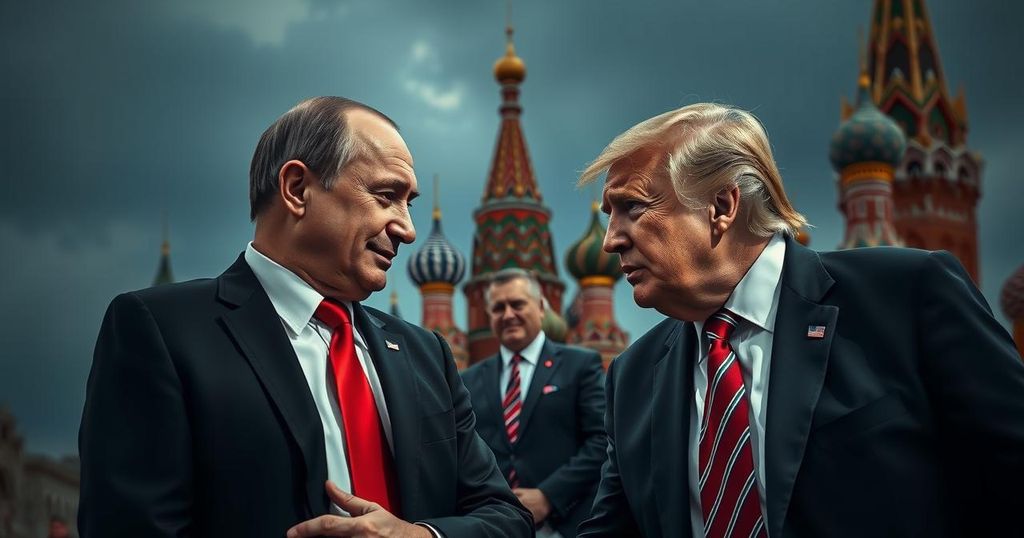Moscow’s Wariness of a Donald Trump Second Term
In Moscow, initial enthusiasm for Donald Trump’s presidency has transformed into caution due to unmet expectations from his first term. Political elites, including President Putin, express a mixed view, acknowledging Trump’s criticisms of US military aid to Ukraine while contrasting it with Vice President Kamala Harris’s stronger stance against Russia. As the upcoming election approach draws near, the potential for a contested result raises concerns for the Kremlin about the focus on foreign affairs. Historical contexts and individual sentiments reflect ongoing complexities in US-Russian relations.
Russian optimism regarding Donald Trump’s presidency has significantly diminished since his initial election victory in 2016. While some officials exuberantly celebrated Trump’s ascension to power, hoping for an easing of sanctions and improved relations, the reality fell short of those expectations. Instead, Trump enacted substantial sanctions against Russia during his term, leading to disappointment amongst Moscow’s political elites. Presently, with the prospect of a second Trump term looming, Russian officials have adopted a cautious approach. President Vladimir Putin has even made ironic comments supporting the Democratic Party candidate, hinting at dissatisfaction with Trump’s previous policies. Trump’s remarks, particularly concerning military assistance to Ukraine and his reluctance to criticize Putin, resonate positively with the Kremlin. Contrarily, Vice President Kamala Harris has taken a firmer stance against Russia, highlighting the need for US support of Ukraine and directly labeling Putin as a dictator. As the US approaches another turbulent election cycle, many in Moscow are wary that a tightly contested election or post-vote chaos could detract attention from foreign affairs, including the ongoing conflict in Ukraine. Historical reflections on US-Russian relations underscore the significant shifts over the decades, from Reagan and Gorbachev’s partnership efforts to the present souring under consecutive administrations. As Russians express a mix of sentiment towards the United States—from antagonism to a desire for peaceful relations—discussions continue about the implications of the next US president on the geopolitical stage.
The article discusses the evolving perceptions in Moscow towards Donald Trump, particularly in light of his previous presidency and the potential for a second term. Initially, there was significant hope in Russia that Trump would foster more amicable US-Russian relations, perhaps even leading to lifted sanctions and recognition of Crimea. However, Trump’s presidency bore significant sanctions against Russia, leading to disappointment among Russian political elites. The current viewpoints reflect a more cautious stance on a Trump second term, fueled by recent political rhetoric and the ongoing conflict in Ukraine, emphasizing the complex dynamics between the US and Russia post-Obama, Trump, and Biden’s presidencies.
In conclusion, as the United States approaches another election, the cautious sentiments in Moscow towards Donald Trump highlight the complexities of US-Russian relations. While some officials cautiously hope for a favorable outcome, history shows that expectations may not always align with reality. The interplay between Trump’s statements and the policies of the Democratic Party underscores the differing visions for US foreign policy, particularly concerning Ukraine and Russia.
Original Source: www.bbc.com




Post Comment